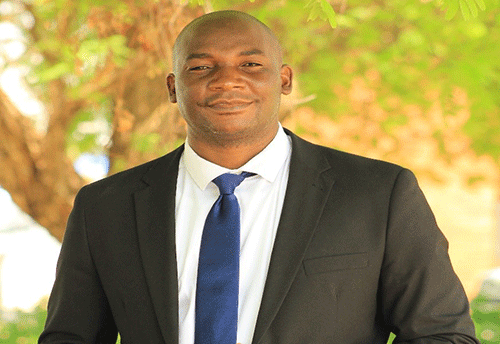Dr Kennedy Kaumba Mabuku
In the annals of history, talent retention within security institutions may not have been the primary focus.
However, as the 21st century unfolds, our evolving world demands a significant shift in perspective.
It is now undeniably clear that retaining and nurturing talents within these organisations is not merely a preference but an absolute imperative.
Achieving this goal necessitates the adoption of effective talent management policies, which serve as the guiding compass leading toward responsible and sustainable talent management.
These policies ensure the invaluable human resources within security institutions are harnessed to their fullest potential.
The need for such policies has never been more pressing in this era of rapid change and evolving security challenges.
This article delves into the critical role of adopting talent management policies and their impact on shaping the future of security institutions in the 21st century.
Talent management policies lay the groundwork for innovation within security institutions. By identifying and nurturing talented individuals, these policies enable fresh perspectives and cutting-edge ideas to flourish, ultimately helping these institutions achieve their strategic objectives.
This brings to mind the insightful words of Andrea Jung, who noted, “Talent is the number one priority for a CEO. You think about the vision and strategy, but you have to get the right people first”.
In a rapidly evolving security landscape, innovation is paramount for staying ahead of emerging threats and challenges.
Talent management policies help identify individuals with leadership potential and provide the necessary training and mentorship to assume leadership roles.
This ensures a seamless transition of leadership and promotes stability within the organisation. African security institutions are responsible for maintaining law and order, and talent management policies ensure that highly skilled and dedicated individuals are consistently present within the organisation.
This leads to the continuity of top-notch service delivery, even during times of transition. In the words of Jack Welch, “I view my primary job as strengthening our talent pool, so I view every conversation, every meeting as an opportunity to talk about our talented people.” Building on this notion, a fundamental aspect of security leadership should involve discussing organisational talents while also considering the organisation’s needs alongside individual interests.
Recently, substantial evidence has accumulated to show that in a world where security challenges are becoming increasingly complex, talent is a valuable asset. This explains why security institutions prioritising talent management are better equipped to compete on the global stage, thus contributing to the overall security of their nations and regions.
However, among the historiography of security, one undeniable fact stands out: despite the numerous advantages of talent management policies, they should be more noticed and addressed in many African security institutions.
The focus tends to be on immediate operational concerns, relegating long-term talent development to the back burner. My experience attests to the lack of standardised talent management policies and measures to retain highly valuable members of the organisation and attract talented individuals. This fundamental and observable flaw requires attention from top leadership. The “great man theory of leadership” suggests that some individuals are born with characteristics that naturally make them skilled and great. While this view has its merits to a certain extent, it is also true that some individuals become great when they are nurtured and shaped.
There is a consensus among social scientists that contemporary policing and security require leaders and human resources professionals to recognise the importance of retaining the most talented individuals. Talent management policies assist in identifying these talents and shaping them for future leadership roles. In conclusion, we must ask the following questions: Do we truly know who the talented individuals are within the organisation?
How often are those entrusted with the responsibility of ensuring that the security organisation retains its talents truly concerned about retaining them? Are they troubled when highly talented individuals leave the organisation? Should talent management policies become a necessity? These questions serve as a crucial starting point for evaluating the efforts made in any security institution to retain its most talented individuals.
*Dr Kennedy Kaumba Mabuku shares these thoughts personally, independent of any African security institutions.


